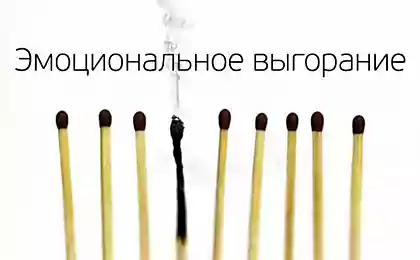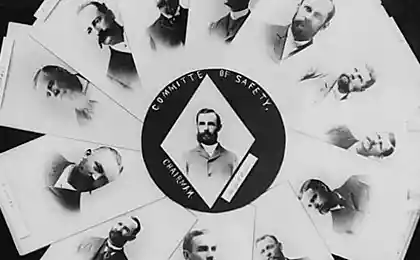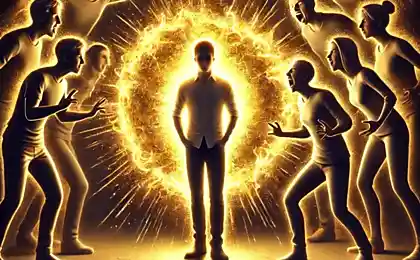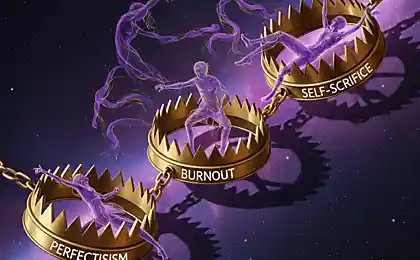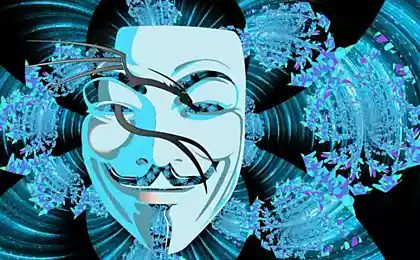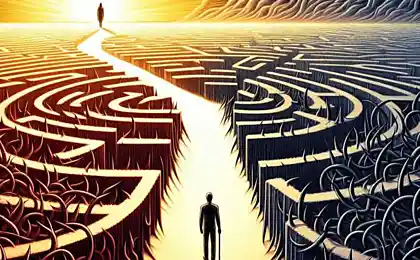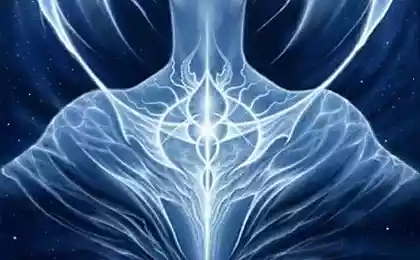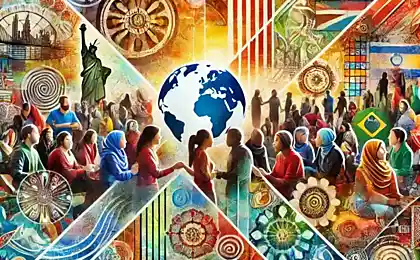199
13 Reasons Why Modern Society Is So Toxic
In-depth analysis of social degradation and the path to healing

Attention! What you read next can dramatically change your understanding of the modern world. We live in an era of unprecedented social toxicity, and most people don't even realize the scale of what's happening.
Every morning, millions of people wake up feeling the world is more hostile than it was yesterday. And they're right. Modern society is experiencing a crisis of unprecedented proportions – a crisis of humanity. We have witnessed a systemic degradation of social bonds, where toxicity has gone from exception to normal.
Studies show that the rate of social aggression has increased by 340% over the past two decades, and cases of emotional burnout among young people have increased by 5 times. But the numbers are just the tip of the iceberg. The real problem is much deeper.
The Phenomenon of the Crowd Mind: When Individuality Dissolves
Crowd psychology in action
Imagine a man who would never harm an ant alone. But put him in a crowd of angry people and he could become part of a lynching. This is not a figure of speech; it is a scientifically proven phenomenon.
In 1895, French psychologist Gustave Le Bon warned of the destructive power of crowd consciousness. Today, his predictions have come true with frightening accuracy. Social media has created a global crowd where millions of people are simultaneously losing the ability to think critically.
Have you ever noticed how your opinion changes after viewing comments online? How does something that seemed reasonable suddenly start to look stupid under the onslaught of other people's emotions?
The mechanism is simple and terrifying: the person in the crowd ceases to feel personally responsible for their actions. He becomes part of a collective organism where shame, doubt, and moral hindrance disappear like smoke. Aggression becomes contagious, and abnormal behavior normalizes at the speed of light.
Mental garbage: how the information diet poisons the mind

Shocking fact: The average person consumes more information per day than the average person in his life. And 90% of that information is toxic garbage.
Open any news feed. What do you see? Scandals, conflicts, catastrophes, cheating celebrities. Your brain, designed to survive in a tribe of 150 people, is trying to process the problems of seven billion people. The result is predictable: anxiety, irritation, loss of focus.
We live in an age when entertainment has become a drug and drugs have become entertainment. The line between reality and spectacle has completely disappeared.
But the scariest thing is not the amount of junk information, but how it changes our perception of the norm. When you see aggression and conflict on a daily basis, they don’t seem exceptional. Calmness and kindness begin to be perceived as strangeness, and toxicity as a natural state.
Information bubbles: a prison for the mind
Modern algorithms have created a personal reality for each person. You see only what confirms your views, read only what you like. It seems comfortable, but it turns people into psychologically disabled people unable to cope with the real world.
Practical solution: Detoxification of information
- Set a limit on news consumption: no more than 15 minutes a day
- Subscribe to sources with opposite views
- Do a 24-hour digital detox weekly
- Replace entertainment with educational content
Addiction of approval: how social networks turned people into beggars
Every like, every view, every notification releases a dose of dopamine into the bloodstream. We have become addicts of other people's attention, ready for any humiliation for the next dose of approval.
Remember the last time you posted something on social media? How often have you checked your reaction? How did you feel when there were fewer likes than expected?
The problem is not social media itself, but how it exploits basic human needs for acceptance and acceptance. People become artists who play the part of who they want to be, instead of being themselves.
The result is catastrophic: everyone wants to be heard, but nobody wants to listen. Communication turns into parallel monologues, where everyone is waiting for his turn to speak without perceiving the words of the interlocutor.
Man as Commodity: The Tragedy of Consumer Society
The economic use of people
Modern business is no longer about creating value. It is based on the exploitation of human weaknesses and needs. The faster, cheaper and more cynical you can sell a product, the better.
People are no longer people; they are consumers, resources, and target audiences. While they're buying, they're needed. Once purchasing power runs out, a person becomes a ballast.
This dehumanization has penetrated into all spheres of life. At work, you are valued not as a person, but as a resource. In a relationship, partners value each other as a commodity in the love market. Even friendship is often built on the principle of “what I get out of it.”
The implications are clear: People feel used and either get angry or give up. Both lead to the destruction of social ties.
Hyperindividualism: When Selfishness Becomes Philosophy

“You owe nothing to anyone,” “Live only for yourself,” “Put yourself first”—these slogans sound like an hymn to freedom, but in fact turn society into a war of all against all.
The paradox of modernity is that the more we care about ourselves, the more unhappy we become. Man is a social being, and his well-being is inextricably linked with the well-being of others.
Extreme individualism destroys the foundations of human society. No one is ready to give in, help, compromise. Everyone sees himself as the center of the universe and the rest as the scenery of his own life.
Emotional degradation: when feelings became taboo
Modern society has imposed a cult of false positives on people. To cry is shameful, to be angry is dangerous, to worry is to be weak. “Be resourceful,” “noise,” “positive thoughts” – these mantras have turned people into emotional robots.
When was the last time you cried from the heart? When did you let yourself be really angry? Or are you wearing a “good” mask?
Suppressed emotions do not disappear anywhere – they accumulate as radioactive waste and sooner or later come out in the form of breakdowns, conflicts, psychosomatic diseases and toxic attitudes towards others.
Work as a machine to destroy the soul
The statistics are killer: 76% of working people experience burnout symptoms. 89% believe that work deprives them of the meaning of life.
The modern world demands more from man than he can give. Work faster, more efficiently, more. Always be available, always ready, always productive. In exchange, get stress, burnout, and a life that boils down to a home-work-home formula.
Even those in good positions are increasingly looking like zombies. They do “important things,” get a “decent salary,” but feel empty inside. And beside them are the same tired, devastated, angry people.
Sex without a soul: Intimacy in the era of one-off relationships
Everything is sexualized, but there is almost no real intimacy. Humans move closer together, but souls remain strangers. Sex has become a sport, an entertainment, a way to relieve stress – anything but an expression of love.
We crave true intimacy, but are afraid to open up. We end up with a body and lose our soul. And then we wonder why it becomes even more lonely after physical intimacy.
Relationships as a marketplace
Love became like shopping in an online store: flipped through the catalog, chose the product, tried, did not fit – threw away and ordered the next. Dating apps have turned finding a partner into a game where people have become swipe cards.
There's no depth, only packaging. If something goes wrong, it’s easier to find a replacement than to work on a relationship. As a result, even couples living together for years remain emotional strangers.
Education as a robot factory
Systemic problem of education
The modern educational system does not train people, but functions. Instead of revealing the identity, it churns out standardized performers.
Children are taught to learn, but not to think. They drill down standards, but they don’t help us understand who they are or why they live. Education has become a race for points, diplomas, certificates – formalities that have nothing to do with real life.
As a result, society receives crowds of certified non-scientists – people with papers, but without understanding themselves and the world. They don’t know how to deal with reality because no one taught them.
Speed as a religion of destruction
Life has become an endless race under the slogan “faster, higher, stronger”. But the faster we run, the further away we are from ourselves.
Everyone is in a hurry, but nobody knows where. Everyone should be productive, efficient, and keep up with progress. In this frantic rhythm, people cease to live – they just function.
And then suddenly they stop and ask, "Where am I?" Why am I doing this? What's happening to me? But it's scary to stop because you can fall behind, and in the modern world, being behind is like dying.
Values have been replaced by trends
One thing is fashionable today, another tomorrow. And this applies not only to clothing, but also to attitudes, principles, morality. Everything became temporary, shiftable, like wallpaper on the desktop.
Do you have beliefs that won’t change because it’s fashionable to think differently? Or are you following trends in thinking?
People cling to agendas instead of developing their own principles. If a person does not have deep values, they are very easy to manipulate. In such an atmosphere, nothing lasting can be built – no relationships, no communities, no future.
Path to Healing: Practical Solutions
Personal detoxification program
- Information diet: Limit your consumption of toxic content to 15 minutes a day
- Emotional honesty: Allow yourself to feel all emotions without shame.
- Real connections: One hour of live communication is worth ten hours on social networks
- Slowdown: Take 15 minutes every day for total silence.
- Value thinking: Identify 3-5 principles that will not change with fashion trends
Creating a healthy environment
Change not the world, change your surroundings. Surround yourself with people who support growth, not degradation. Create spaces for real communication, creativity, development.
The toxicity of modern society is not a sentence, but a challenge. Everyone can be an island of sanity in an ocean of madness. Start with yourself and you’ll be surprised how quickly a healthy community of like-minded people will begin to form around you.
Remember, you don’t have to save the world. But you can save your world – and that’s enough to trigger a chain reaction of positive change.
Glossary of terms
Crowd consciousness A psychological phenomenon in which a person in a group loses the ability to think critically and acts under the influence of collective emotions.
Information bubble A situation where a person receives information only from sources confirming their existing views, which creates a distorted picture of reality.
Olivia Halcodge: British model conquers America
Girls are not your level: which of the women should not meet and enter into relationships


